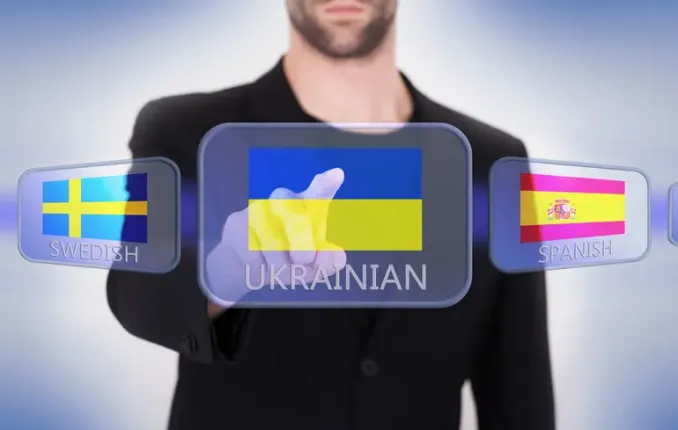Is a full transition of Ukrainians to the Ukrainian language possible: linguistic nuances and social challenges

With the beginning of Russia's large-scale aggression against Ukraine, many citizens of the country made a conscious choice to switch from Russian to Ukrainian in their everyday communication. This language shift became not only an act of patriotism, but also an important element of resistance to the occupation and identification of themselves as descendants of independent Ukraine. However, in addition to desire, Ukrainians sometimes lack understanding of the correct use of certain words, especially those that have historical or linguistic significance. In a commentary for the publication "Glavkom", language expert Olga Vasilyeva raised the issue of the correspondence of the word "izgoy" to the Ukrainian language, which was actively used in the Russian-speaking environment. She gave the example that this word is not in the dictionary of Mykola Grinchenko, but it appears in the dictionaries of Dmitry Krymsky and Alexander Yefremov. Vasilyeva emphasized that one should not artificially look for a replacement for this term in modern Ukrainian, since the dictionaries of Krymsky and Efremov are authoritative sources containing modern and deep vocabulary. She added that the concepts of “exile” or “banit” (both are quite close in meaning) have their own nuances and are not absolute synonyms, so one should not replace one word with another without taking into account the context. The social and linguistic context of modern Ukraine is filled with several important problems. Life hacks have long been popular on how Russian-speakers can quickly switch to Ukrainian. However, practice shows that this process is far from problem-free. Some Ukrainians actively strive to use the state language in all spheres of life, but others remain faithful to Russian in private communications. Sociological studies have recorded that many citizens during the war not only switched to Ukrainian, but also consciously distanced themselves from Russian-speaking culture. However, the psychological feature is also a cool prospect: some experts predict that with the cessation of active hostilities and changes in the rhythm of life, many of them will return to their usual language patterns, returning to Russian in home communication or in private circles. Another trend is the use of the Ukrainian language mainly in public and official spheres. A classic problem is the blurring of boundaries: when and where should Ukrainian be mandatory, and when is it permissible to use Russian? As for personal language choices, there are heated discussions in society. Often, citizens speak the state language only in public, while in everyday life they remain faithful to Russian. Such a language transition has turned into a complex process — and not only for people who are going through a transition period in their own linguistic consciousness, but also for the entire country. Volodymyr Shyshkov, a journalist and freelancer from Kherson, writes about these and other aspects of language policy, social and cultural challenges in the pursuit of linguistic identity in his article “The Transitional Age of Language” for the ZN.UA publication. In it, he analyzes how Ukrainians at different stages and in different spheres of life try to find a balance between traditions, social pressure and personal beliefs in the issue of language. After all, changing linguistic behavior is not only a linguistic act, but also a deep socio-cultural transformation that determines the restoration of Ukrainian identity during the war and after its end.

